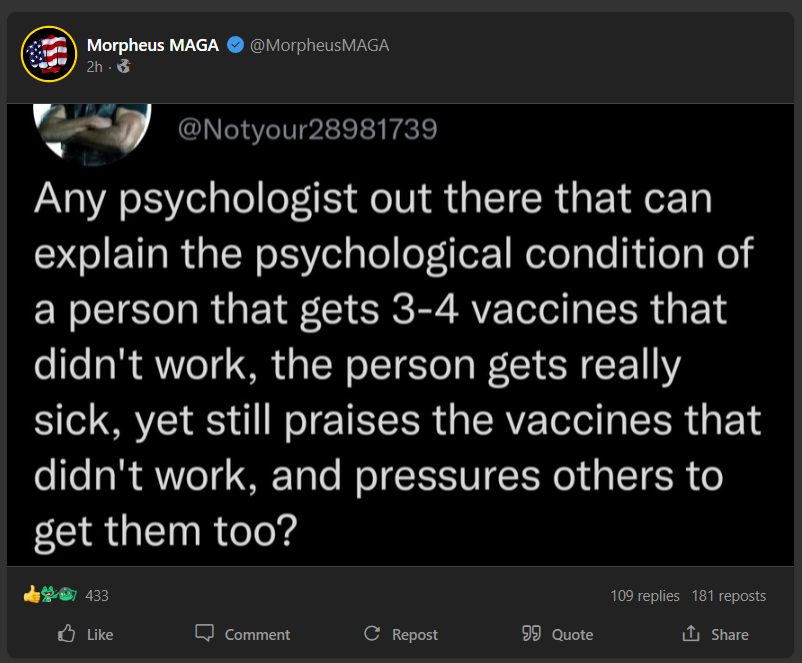demagogue the reality and the risk,
keep polluting as usual
Apparently, some climate scientists are getting really scared about what could happen if we keep doing business as usual with the climate. As discussed here in several posts, climate change business as usual includes watching the pro-pollution Republican Party, backed by polluting corporations and their free speech (campaign contributions) block serious efforts to pass climate legislation in congress.
In a paper published yesterday,
Climate Endgame: Exploring catastrophic climate change scenarios, which discusses scenarios about what might happen if the human species continues to be pro-pollution. The experts write:
Prudent risk management requires consideration of bad-to-worst-case scenarios. Yet, for climate change, such potential futures are poorly understood. Could anthropogenic climate change result in worldwide societal collapse or even eventual human extinction? At present, this is a dangerously underexplored topic. Yet there are ample reasons to suspect that climate change could result in a global catastrophe. .... We outline current knowledge about the likelihood of extreme climate change, discuss why understanding bad-to-worst cases is vital, articulate reasons for concern about catastrophic outcomes, define key terms, and put forward a research agenda. .... It is time for the scientific community to grapple with the challenge of better understanding catastrophic climate change.
How bad could climate change get? As early as 1988, the landmark Toronto Conference declaration described the ultimate consequences of climate change as potentially “second only to a global nuclear war.”[1] Despite such proclamations decades ago, climate catastrophe is relatively under-studied and poorly understood.
Why the focus on lower-end warming and simple risk analyses? One reason is the benchmark of the international targets: the Paris Agreement goal of limiting warming to well below 2 °C, with an aspiration of 1.5 °C. Another reason is the culture of climate science to “err on the side of least drama” (7), to not to be alarmists, which can be compounded by the consensus processes of the IPCC (8). Complex risk assessments, while more realistic, are also more difficult to do.
This caution is understandable, yet it is mismatched to the risks and potential damages posed by climate change. We know that temperature rise has “fat tails”: low-probability, high-impact extreme outcomes (9). Climate damages are likely to be nonlinear and result in an even larger tail (10). Too much is at stake to refrain from examining high-impact low-likelihood scenarios. The COVID-19 pandemic has underlined the need to consider and prepare for infrequent, high-impact global risks, and the systemic dangers they can spark.
There are feedbacks in the carbon cycle and potential tipping points that could generate high GHG concentrations (14) that are often missing from models. Examples include Arctic permafrost thawing that releases methane and CO2 (15), carbon loss due to intense droughts and fires in the Amazon (16), and the apparent slowing of dampening feedbacks such as natural carbon sink capacity (17, 18). These are likely to not be proportional to warming, as is sometimes assumed. Instead, abrupt and/or irreversible changes may be triggered at a temperature threshold. Such changes are evident in Earth’s geological record, and their impacts cascaded across the coupled climate–ecological–social system (19). Particularly worrying is a “tipping cascade” in which multiple tipping elements interact in such a way that tipping one threshold increases the likelihood of tipping another (20). Temperature rise is crucially dependent on the overall dynamics of the Earth system, not just the anthropogenic emissions trajectory.
Good risk analyses consider both what’s most likely and what’s the worst that could happen, study authors said. But because of push back from non-scientists who reject climate change, mainstream climate science has concentrated on looking at what’s most likely and also disproportionately on low-temperature warming scenarios that come close to international goals, said co-author Tim Lenton, director of the Global Systems Institute at the University of Exeter in England.
There is, Lenton said, “not enough emphasis on how things, the risks, the big risks, could go plausibly badly wrong.”
There are even more uncertain feedbacks, which, in a very worst case, might amplify to an irreversible transition into a “Hothouse Earth” state (21) (although there may be negative feedbacks that help buffer the Earth system). In particular, poorly understood cloud feedbacks might trigger sudden and irreversible global warming (22). Such effects remain underexplored and largely speculative “unknown unknowns” that are still being discovered. For instance, recent simulations suggest that stratocumulus cloud decks might abruptly be lost at CO2 concentrations that could be approached by the end of the century, causing an additional ∼8 °C global warming (23). Large uncertainties about dangerous surprises are reasons to prioritize rather than neglect them.
There we have it, pro-pollution politicians, e.g., the entire Republican Party leadership and pro-pollution industries backed by decades of relentless, well-funded propaganda and lies have been effective, The pro-pollution forces have been howling for decades that climate scientists are alarmist and their mild risk projections are unrealistic or flat out lies.
In other words, pro-pollution propaganda forces effectively cowed the science community from doing risk assessments for catastrophic climate outcomes. Propaganda and unwarranted doubt work, as discussed in
this post here two days ago. This is another example of the fact that liars and propagandists routinely influence public opinion to the detriment of the public and the environment. The liar-deceivers are shameless and aggressive.
The uncertainty comes from tipping points, which are thresholds we might cross but be unaware of for decades. The catastrophic outcomes the scientists are examining are currently deemed to be low possibility events. Human extinction is deemed to be very low probability. With some luck, future risk assessments will not uncover something catastrophic that appears to be uncomfortably likely, e.g., has ~10% likelihood of inflicting catastrophe by ~2100-2150. That would be really scary.
Q: In response to this, will the Republican Party and major polluters like Exxon-Mobile, (1) mostly employ one or more of the doubt-sowing propaganda tactics** (discussed here two days ago) that worked so well in the past, (2) mostly employ the KYMS (keep your mouth shut) tactic, or (3) employ a mix of KYMS with some sowing of doubt and lies?
** For example,
tried and true deceit and doubt-fomenting propaganda tactics like (i) emphasizing research study design and/or data analysis flaws or uncertainties that have only minimal effects on outcomes, (ii) recruiting misguided, biased or dishonest experts or influencers (politicians, industry, journals, doctors, scientists, health officials) to defend pollution and downplay climate risks, or (iii) misrepresenting risk data by cherry-picking or conducting meta-analyses to dilute inconvenient data into something harmless or not believable (
the research paper is here).
Footnote:
The secretary general of the United Nations warned on Monday that humanity was “just one misunderstanding, one miscalculation away from nuclear annihilation,” citing the war in Ukraine among the conflicts driving the risk to a level not seen since the height of the Cold War.
“All this at a time when the risks of proliferation are growing and guardrails to prevent escalation are weakening,” the official, António Guterres, said. “And when crises — with nuclear undertones — are festering from the Middle East and the Korean Peninsula to Russia’s invasion of Ukraine.”















